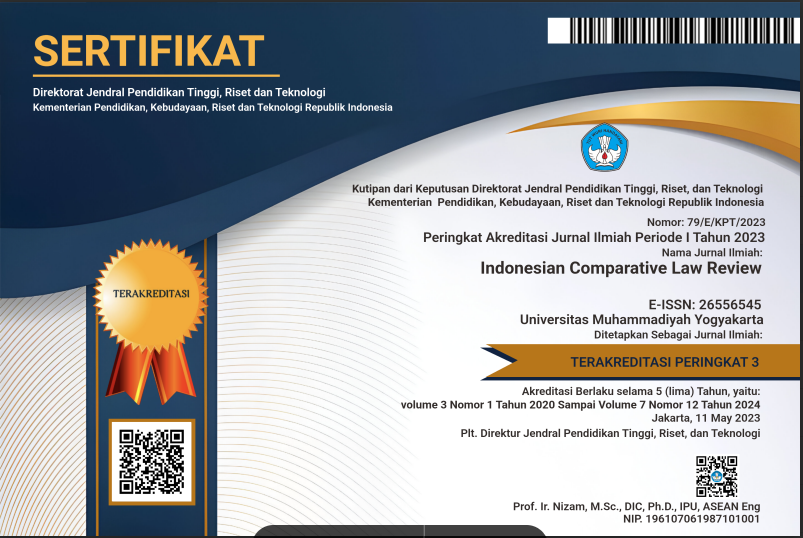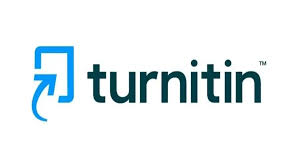Policy Statement
Indonesian Comparative Law Review (ICLR) acknowledges that the author(s) have worked hardly in preparing the manuscript and patiently follow the peer-review procedures carried out by the Journal. However, for research purposes, there is also the possibility for published papers to be removed or even withdrawal. Consequently, corrections, clarifications, retractions and apologies, if necessary because the article has been found violates the ethics. Those processes will also be carried out with strict criteria to preserve confidence in the authority of its electronic archives. Our dedication and strategy are to preserve the quality and completeness of relevant scientific documents in the collections of researchers and librarians.
Content Integrity and Maintenance
ICLR recognizes the importance to scholars and librarians of the integrity and completeness of the scholarly record and attaches the utmost importance to preserving confidence in the authority of its electronic archive. Clicking on the CrossMark icon will remind the reader of the current status of the document and will also provide additional publication record information on the document. Applying the CrossMark icon is a promise made by the ICLR to keep content published and warn readers to change as and when occurred.
Article Retraction
ICLR has a commitment to maintain the quality of the article. In case, if there is a mistake and/or writing error from the author(s) that can impact to the quality and accuracy of the article, the article(s) can be retracted, if:
There is a significant scientific mistake that may invalidate the conclusions of the article, for example, there is strong proof that the findings are not credible that accordingly would generate a misleading legal concept or opinion.
The results have previously been published elsewhere without sufficient cross-reference, permission or justification.
There are ethical problems, such as plagiarism (appropriation of the ideas, procedures, findings or words of other person(s) without giving due credit, even those gained by confidential analysis of the manuscripts of others) or unauthorized authorship.
In order to ensure that retractions are conducted in compliance with the best practice of publishing and the COPE Retraction Guidelines, ICLR adopts the following retraction process:
An article shall be brought to the attention of the editor of the journal.
The editor of the journal should obey the step-by-step instructions according to the COPE flowcharts (including evaluating a response from the author of the article in question).
Before any decision is taken, the reports of the editor should be forwarded to the Ethics Advisory Board which will be a forum to provide an advice and recommendations regarding ethical issues. The goal of this stage is to ensure a consistent approach in line with ethical practices.
The final decision on whether to withdraw is then conveyed to the author and, if necessary, to all other relevant bodies, such as the institution of the author affiliated.
The Retraction Statement is then posted online and released in the next available journal issue.
Notice that if author(s) hold copyright for an article, this does not mean that they automatically have a right to remove it after publication. The credibility of the published scientific manuscript is of utmost importance and the COPE Retraction Rules still apply in such situations.
Article Withdrawal
The author is not allowed to withdraw the submitted manuscripts because the withdrawal is a waste of valuable resources since editors and referees have spent plenty of time editing the manuscript and the works invested by the publisher. The author is obliged to approve the checklist provided before sending the manuscript via Online Journal System (OJS).
If the author demands the removal of his/her manuscript while the manuscript is still under peer-review, the author will be fined by paying USD100 per manuscript.
If the withdrawal of the manuscript is approved for print, the author will be fined by paying USD150 per manuscript.
If the manuscript has been published as "Article in Press" (articles that have been accepted for publication but which has not been formally published and will not have the complete volume/issue/page information) that include errors, or are discovered to be accidental duplicates of other published article(s), or are determined to violate our journal publishing ethics guidelines in the view of the editors (such as multiple submissions, bogus claims of authorship, plagiarism, fraudulent use of data and the like), maybe "Withdrawn" From the ICLR website. Withdrawing means that the article content (HTML and PDF) is deleted and replaced with an HTML page and PDF simply states that the article has been withdrawn.
If the author requests removal of the manuscript, an official letter signed by the corresponding author and Head of Department of the affiliated institution should be submitted to the Principal Editor.
Article Correction
ICLR should consider making a correction if:
A small part of otherwise reliable publication reports incorrect data or proves to be inaccurate, particularly if this is the product of an honest mistake.
The list of author(s)or contributors is wrong (e.g. a deserving author has been omitted or someone who does not meet authorship criteria has been included).
Corrections to peer-reviewed material fall into one of three categories:
Publisher correction (erratum): inform readers of a significant error made by the publisher/journal staff (usually a production error) which has a negative effect on the publication record or the scientific credibility of the article or on the reputation of the authors or journals.
Author correction (corrigendum): to inform readers of a significant error made by the authors which has a negative effect on the publication record or the scientific reputation of the paper, or on the reputation of the Authors or the journal.
Addendum: an addition to the article by its authors to clarify contradictions, extend existing work, or otherwise explain or update the details in the main work.
The decision whether a correction should be made by the editor(s) of a journal, along with recommendations from the members of the Reviewers or the Editorial Board. Managing Editors will approach the author(s) for clarification.
Article Removal
In a very limited number of instances, it may be appropriate to delete a published article from ICLR online website. This can only happen if the article is explicitly defamatory or infringes the legal rights of others, or if the article is, or we have practical reason to accept it to be, the subject of a court order, or if the article, if acted upon, may pose a significant health danger. In such cases, the metadata (i.e. title and author information) of the article will be preserved, the article will be replaced by a screen showing that the article has been deleted for legal purposes.
Article Replacement
In situations where an article can pose a significant health risk, the authors of the original paper may decide to remove the original faulty and substitute it with a corrected edition. In such cases, the procedures for retraction referred to above will be followed with the difference that the notice of retraction of the article will include a link to the revised re-published article along with the history of the manuscript.



